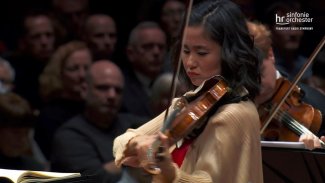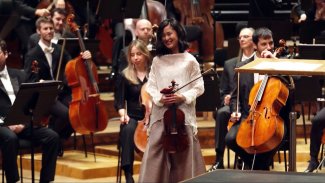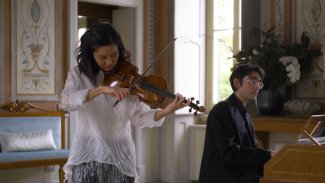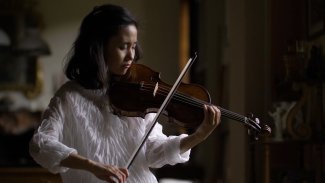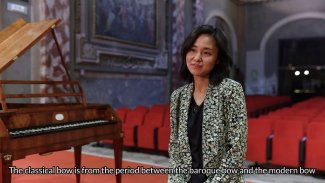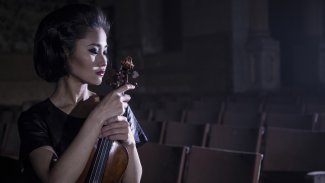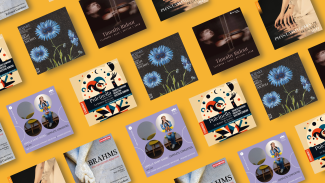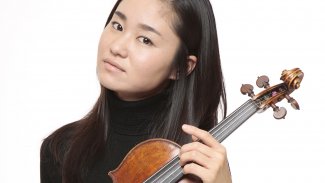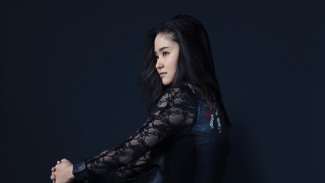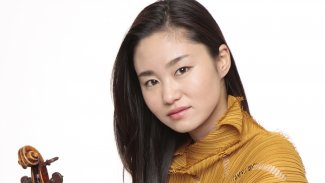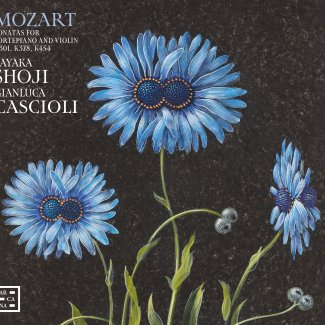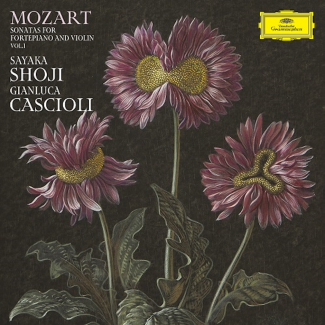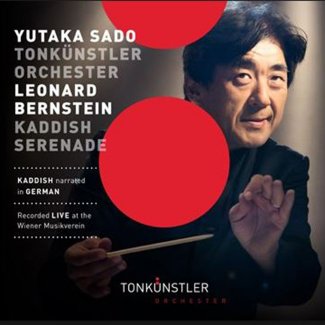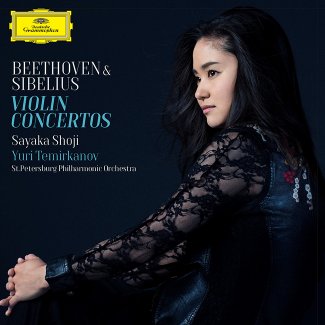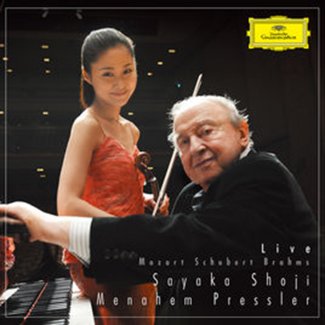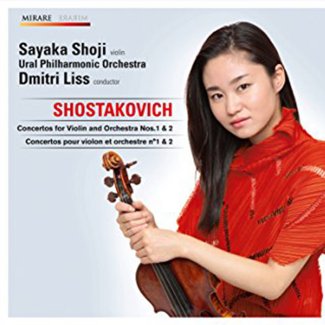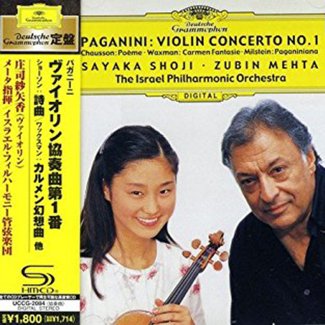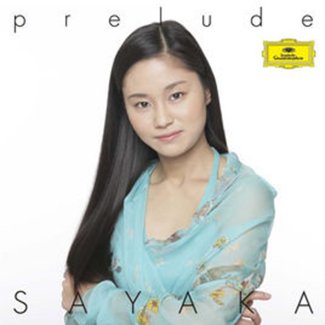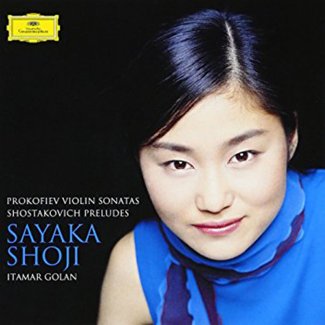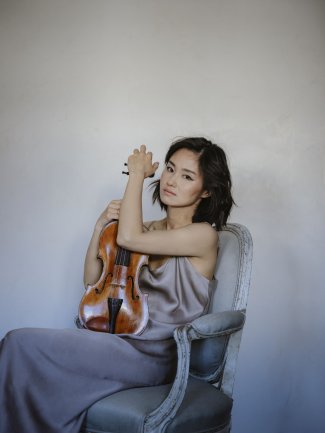
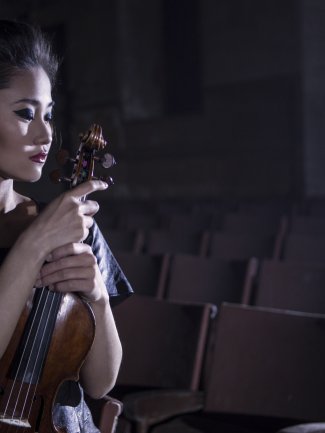
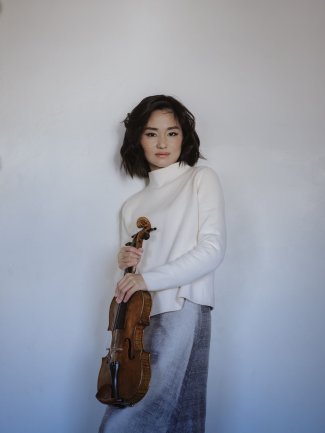
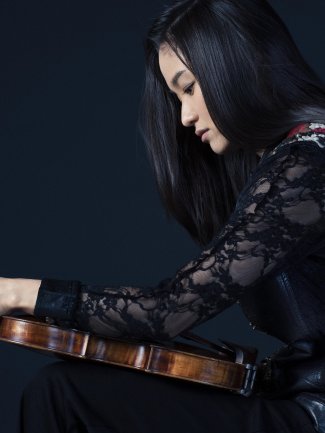
Sayaka Shoji
“Shoji’s unembellished and direct, partly soft-grained, and partly determined bowing, was immaculately integrated with the Philharmonia.”
(5*, Young Jin-Hur, Bachtrack, November 2019)
Sayaka Shoji has become internationally recognised for her unique artistic versatility and detailed approach to her chosen repertoire. Her remarkable insight into musical languages comes from her mix of European and Japanese backgrounds. Shoji was born in Tokyo when she was three and moved to Siena, Italy. She studied at Accademia Musicale Chigiana and Cologne’s Musikhochschule, making her European debut with Lucerne Festival Strings under Rudolf Baumgartner at Lucerne Festival, then at Musikverein, Vienna at the age of fourteen.
Since winning first prize at the Paganini Competition in 1999, Sayaka Shoji has been supported by leading conductors such as Zubin Mehta, Lorin Maazel, Semyon Bychkov, Mariss Jansons, Yuri Temirkanov, and Esa-Pekka Salonen. She has also worked with renowned orchestras including Berliner Philharmoniker, Wiener Symphoniker, Los Angeles Philharmonic, New York Philharmonic, London Symphony Orchestra, Philharmonia Orchestra, BBC Symphony Orchestra, The Mariinsky Orchestra, NHK Symphony Orchestra and Czech Philharmonic, among others.
See more
Highlights of the 2025/26 season include her concerts with Israel Philharmonic with Lahav Shani, Sinagpore Symphony with Masaaki Suzuki, and Camerata Salzburg. Last season saw her performances with San Francisco Symphony, hr-Sinfonieorchester, Cleveland Orchestra, Rotterdam Philharmonic, and Orchestra dell’Accademia Nazionale di Santa Cecilia. She also performed for the opening concert of the new Busan Concert Hall, alongside pianist/conductor Myung-whun Chung and cellist Jian Wang.
As an active chamber musician, in addition to 15 years of collaboration with Gianluca Cascioli, she has a long-standing collaboration with many artists including Modigliani Quartet, Benjamin Grosvenor, Beatrice Rana, Kian Soltani, Steven Isserlis, Stephen Kovacevich, and Víkingur Ólafsson. Shoji regularly appears in recital in venues such as Philharmonie de Paris, Wigmore Hall, Suntory Hall, and Hamburg Laeiszhalle.
In addition to her concert activities, Shoji launched an experimental visual-music project, Synesthesia, in 2007, and has also created oil paintings and video art. Her first video work (Shostakovich Prelude collaboration with P.Frament) was chosen in a group expositionAu-delà de mes rêves in 2014 among the most renown artists such as Y.Kusama, S.Calle and R.Longo. Shoji has also collaborated with Tadao Ando, Hiroshi Sugimoto, and Saburo Teshigawara on numerous occasions.
As a prolific recording artist, Shoji has released eleven albums on Deutsche Grammophon, featuring violin concertos by Prokofiev, Sibelius, and Beethoven with St.Petersburg Philharmonic Orchestra conducted by Yuri Temirkanov. Her earlier recordings include a recital album with pianist Menahem Presseler. In February 2025, she released a second volume of a Mozart album from ARCANA with Gianluca Casiocli, following her previous album of complete Beethoven Sonatas for Piano and Violin.
Shoji won the Mainichi Art Award in 2016, one of Japan’s most prestigious awards, presented to those who have had a significant influence on the arts. In 2012, Nikkei Business named her one of the 100 Most Influential People for Japan in the Future. In 2025, she was awarded the 37th Music Pen Club Music Award (Solo Artist category).
Sayaka Shoji plays a Stradivarius‘Recamier’ c.1729 kindly loaned to her by Ueno Fine Chemicals Industry Ltd.
Contacts
Federico Hernandez General Manager HarrisonParrott Madrid & Latin American Business Yukiko Shishikura Associate Director, Artist Management
worldwide general management
Yukiko Shishikura Associate Director, Artist Management
Yukiko Shishikura Associate Director, Artist Management
worldwide general management
Season Highlights
Seoul Arts Centre
Show more about Seoul Arts Centre
WOLFGANG AMADEUS MOZART: Concerto for Violin No. 5 in A major, K219
Suntory Hall
Show more about Suntory Hall
LUDWIG VAN BEETHOVEN: Concerto for Violin in D major, Op. 61
“This beautiful recording of Mozart’s sonatas is brought to life by a deeply attuned and harmonious duo, whose mutual attentiveness and artistic rapport infuse the music with clarity, warmth, and expressive depth.”
“Sayaka Shoji’s silvery tone and 18th-century bowing techniques match the fortepiano’s
character beautifully, especially in the B flat Sonata K454, where her playing opens out
with unaffected poise and expressive clarity. Her performance embraces the scale and
virtuosity of the work, while maintaining a close rapport with Cascioli in a refreshingly
intimate and stylistically informed interpretation.”
“Shoji and Cascioli’s interpretation stand out for its expressive clarity and stylistic
sensitivity. Cascioli’s use of the fortepiano provides an authentic and transparent tone,
while Shoji’s violin brings a warm and articulate sound.”
“Shoji draws a sonorous tone from her gut-strung Stradivari, conveying a beautiful
cantabile line in K454’s Andante. She matches Cascioli’s fortepiano with alert, nuanced
playing and together they offer refreshingly different readings, marked by imaginative
ornamentation and a varied tonal palette.”
“Sayaka Shoji’s playing throughout this recording is elegant, expressive, and musically
intelligent. Her use of gut strings and minimal vibrato brings a sense of historical
authenticity, while her poetic purity of line — particularly in the slow movements — adds
emotional depth. Together with Gianluca Cascioli, she delivers performances that feel
spontaneous and fresh, offering a compelling case for historically informed
interpretations of Mozart’s violin sonatas.”
Shoji offered a nostalgic glance, both melodically and temperamentally, back toward the Nocturne. Soon enough, she was deep into the cadenza’s brilliantly cascading passagework, set off by a few measures of uncanny simplicity, and sprinting toward the merrily volcanic Burlesque. Near the end of the finale, in one last move in sync with Salonen, the soloist and ensemble briefly stalled the beat before a headlong rush home. Slight of stature, Shoji made a lofty, powerful impact.
“Henri Dutilleux’s Arbre des Songes was performed by Japanese violinist, Sayaka Shoji, whose strong aura and mystery, while alternating strength and letting go on her instrument, stunned the astounded audience.”
“Her triumphant smile during the final pages seemed to show she knew full well that she had just laid claim to one of the towering peaks of the repertory in one of the most memorable Cleveland debuts in years.”
“…midway through the first movement, Allegro non troppo, she had found her footing, and the cadenza was masterful, a real dialogue for one. Shoji’s tone continued to bloom in the Adagio, which she imbued with appropriate anguish, complicating a movement that’s sometimes glossed over as straightforwardly beautiful. Brahms’ music is rife with strange dissonances, and these require a certain confidence to pull off.”
“This was a compelling performance, Shoji soon into her groove and leading with faultless intonation in the high passages of the slow movement, carrying beautifully into the wide open spaces of the hall. She was aided by the horns and trombones of the RPO, positioned along the back of the orchestra, the punctuation of harp and celesta adding glitter to the edge of the sound.”
“The lengthy first movement with its complex and demanding cadenza was breathtakingly performed… [she] received, as was to be expected, rapturous and prolonged applause. Her delivery throughout was astonishing in that she somehow made the sound of this comparatively small instrument fill the entire hall with its warmth and beauty.”
“The highlight of the evening was Brahms’ Violin Concerto… Shoji’s unembellished and direct, party soft-grained, and partly determined bowing, was immaculately integrated with the Philharmonia… Here was a case where thoroughly crafted visions of artistries formed a formidable result.”
“Shoji’s violin had silky beautiful tunes and presented deep and smooth expressions. She understood the composer’s intention and made a variety of expressions which added sharpness to the piece. Her performance was attractive and like a long novel as it was so rich and varied in content.”
“His Violin Concerto No. 3, ‘Still’, takes meditation as its main metaphor. Shoji, who has previously performed concertos by Brahms and Tchaikovsky with CityMusic, at various points played havoc-ridden ascending scales, calm Baroque-quoting trilling melodies, a pained and craggy climactic line that would put Berg to shame, and what might be the longest open-G-string note in the repertoire.”
“Shoji brings un-showy musicianship, a sense of structure and architecture, pleasing tone and flawless intonation to the performance of the Beethoven Concerto. It’s evident that she has the composer’s music in her blood.”
“The Sibelius concertos are played with a crisp and articulated timbre that evokes the atmosphere of Finland.”
“Wednesday’s soloist in the concerto was Japanese violinist Sayaka Shoji, who in 1999 became the youngest winner and first Japanese to capture the Paganini Competition. Playing a 1729 Stradivarius, she displayed a tone that was luxurious in the lower registers, especially at the beginning, and sweet as she ascended to the upper reaches in the second movement. She sailed effortlessly through the third movement’s pyrotechnics and was joined throughout by sympathetic accompaniment from Temirkanov and Co.”
“Soloist Sayaka Shoji (first prize-winner at the 1999 Paganini Competition) demonstrated admirable technical assurance and total commitment to the cause, playing as if she truly loved the music.”
“She allowed the music to speak for itself and wisely focused instead on technical matters, on tone, articulation, and dynamics.”
“Shoji and Cascioli certainly step up to the mark with the mighty proportions and virtuosic demands of Beethoven’s Violin Sonata No. 3 in E flat major, Op. 12, No. 3”
“The first Japanese and youngest-ever winner of the Paganini Competition in 1999 has ample technical ability, but it was her beautifully crafted playing that truly impressed. Shoji treated her listeners to amazing permutations of articulation, tone colour, dynamics and phrasing, while keeping everything coherent and un-forced.”
“Her performance here revealed impeccable intonation and an ability to sculpt phrases with considerable eloquence.”
“Sayaka Shoji is not big, but she certainly has a powerful sound. This was impressive, muscular playing, the bow biting into the string up near the bridge, a hair’s breadth away from ponticello. She has a gorgeous tone, is passionate and expressive, and she takes risks, playing with a rubato that is never excessive and constantly aids the shaping of the music and its direction. She could be ravishingly soft as well, although she ignored Tchaikovsky’s request for a mute in the Canzonetta. The finale was a devil-take-the-hindmost affair, full of dash and colour, with the air of a caprice and a hint of recklessness. This was a proper, thrilling, live event.”

